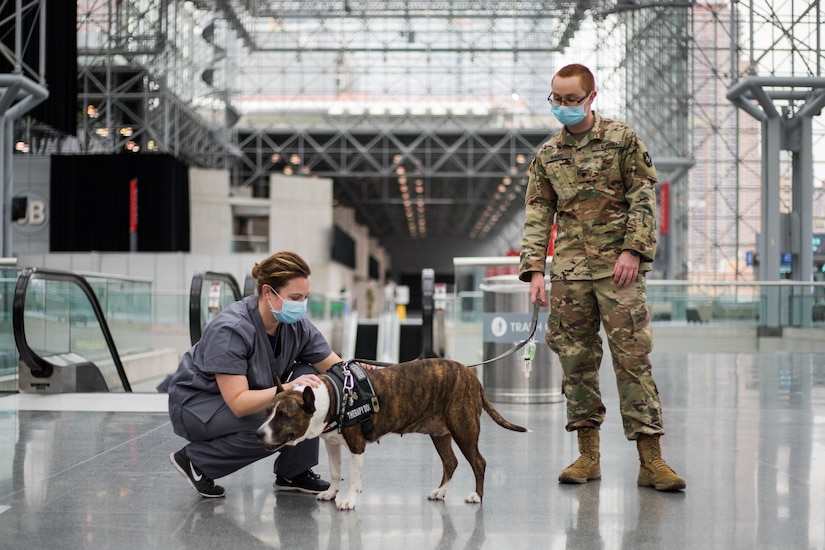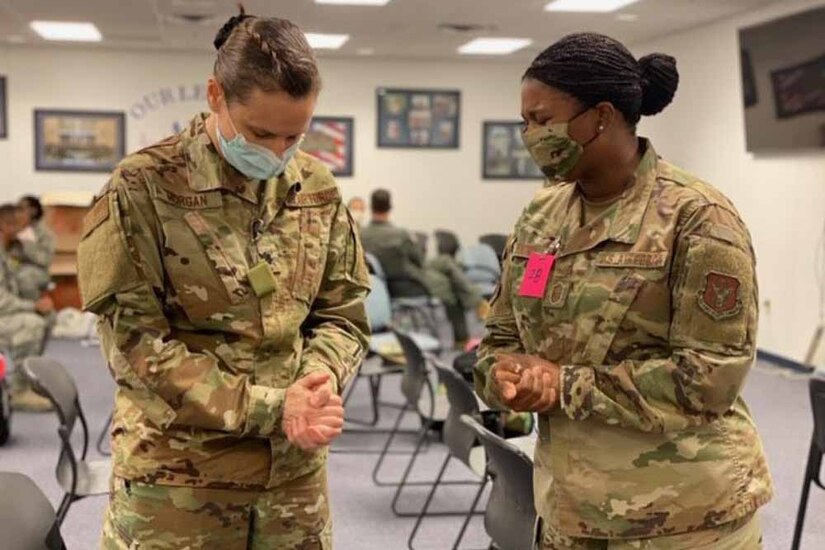The experts speaking in yesterday's session said staying mission-ready while sheltering in place during the COVID-19 pandemic can be difficult for service members, veterans, civilians and their families.

The panelists were Dr. Nicholas Polizzi, action officer for the inTransition Program and the Real Warriors Campaign, Psychological Health Center of Excellence; Dr. Holly O'Reilly, clinical psychologist with the Defense Health Agency; Army Col. (Dr.) David Benedek, chief of psychiatry at the Uniformed Services University of the Health Sciences; and Dr. Stephen Cozza, associate director of the Center for the Study of Traumatic Stress at the USUHS.
"Aside from worrying about the cost of contracting the virus, we worry about the many ways it impacts our lives and for how long," O'Reilly said.
The Defense Department has a number of programs and resources that are available to service members and families — such as the Real Warriors Campaign, which encourages service members and veterans to ask for help, she suggested.
As far as the long-term impact on those on the front lines of health care are concerned, there are measures that all people can take to promote resilience and promote a healthier response to the challenges they're confronting, Benedek said.
"Self-care measures include paying attention to getting good sleep, maintaining good nutritional and hydration habits and devoting time to exercise," he added.
Benedek stressed the things that people can do to promote general physical health and promote mental health. "It's important to try to maintain mental activity. … Exercising mental alertness is important to health," he said.
He echoed Cozza's words about the importance of maintaining social connectivity and social connectedness despite physical distancing, such as staying in touch with family and friends to talk honestly about fears and worries.

Benedek said it's also critical to share in family experiences and positive and happy things to maintain health and mental health.
Polizzi encouraged people to look into evidence-based, self-guided interventions such as the Real Warriors Campaign, noting Real Warriors offers a wide variety of online mental health resources.
Cozza said it's also helpful to use what service members have done in battlefield settings: having battle buddies, engaging in mentorship with colleagues and recognizing that you're not alone. Everyone is working on a team, and facing the same challenges in the COVID-19 pandemic, he said.
Benedek also suggested taking long breaks and engaging in short stress-reduction techniques, including using simple breathing techniques, meditation and mindfulness.
"One of the things we also need to remember is children's responses to [COVID-19] are likely to reflect the responses of their parents," Benedek noted. He said adults should model calmness in the home — even when they are dealing with something difficult.
"It's [about] supporting family structure, so ensure that you
maintain routines in ways that give people a sense of consistency,
regularity and predictability in their lives. That can be very helpful
for both adults and children," he said.








No comments:
Post a Comment